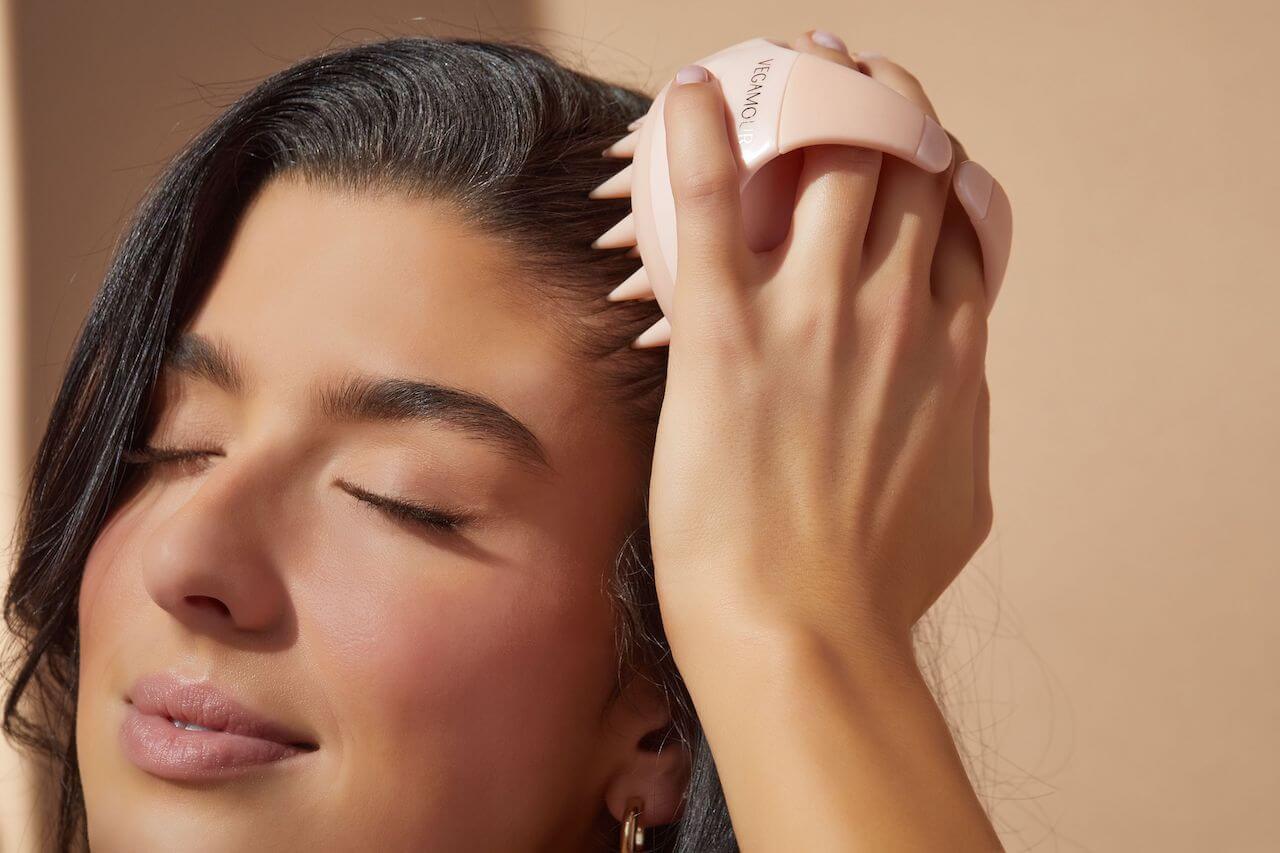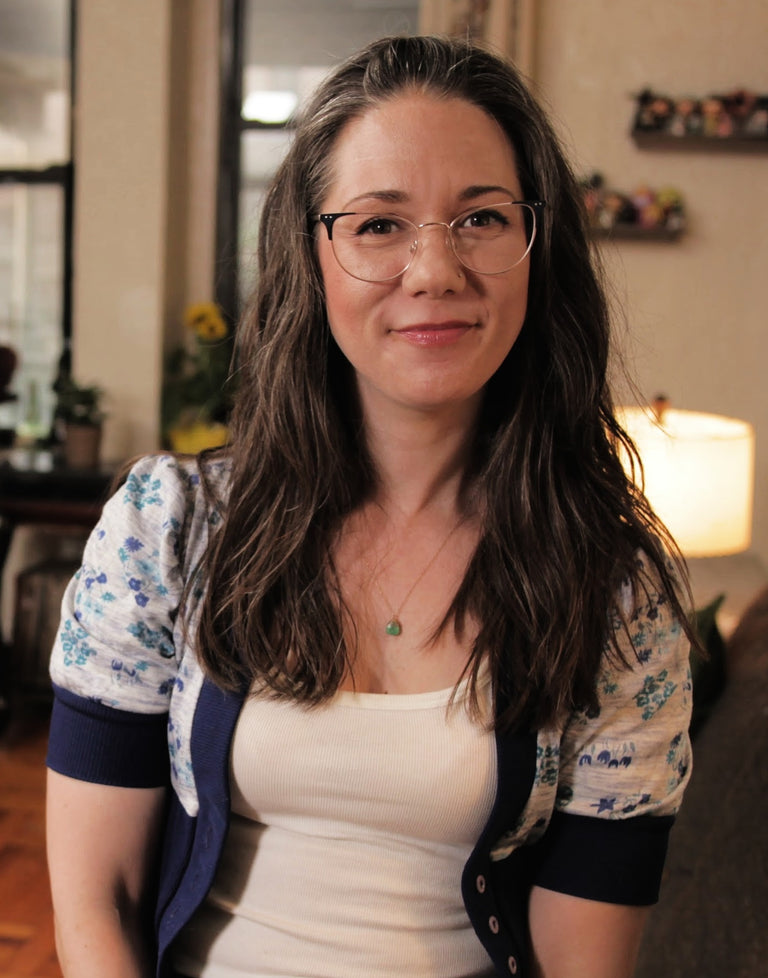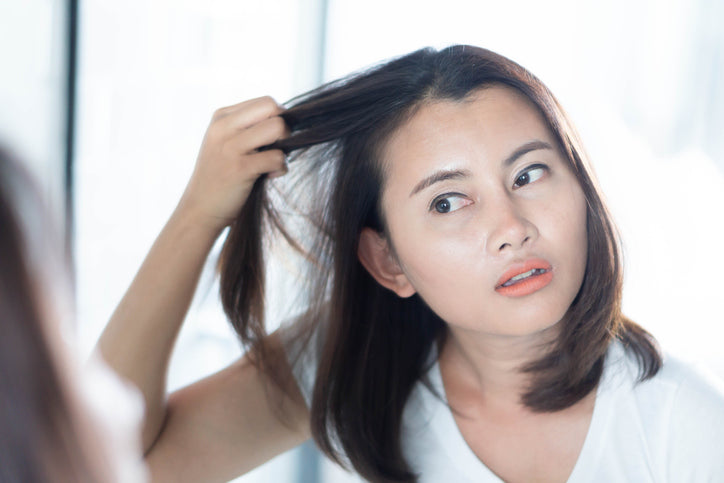White flakes, tightness, itchiness — these are all annoyances that could come along with a dry scalp. If you’re experiencing a dry scalp along with increased hair shedding or thinning hair, you might be wondering if there's a connection. Read on to understand what dry scalp is, how it could be connected to other conditions that cause hair loss, and what you can do to support a healthy scalp and hair.
What Is Dry Scalp, Exactly?
“Dry scalp is a lack of moisture or oil in the scalp,” said Dr. Zachary Okhah, founder and chief surgeon with PH-1 Miami. “It can result from exposure to cold, dry air, stress, aging or even overwashing. Or it can be a reaction to the soap, shampoo or other hair products you use. These factors can draw moisture from the scalp, drying it out, and causing the skin to flake off."
When your scalp is dry and not getting enough moisture, it can also feel tight or become irritated and itchy, in addition to flaking. You might also notice dry patches of skin on other areas of the body.
It seems simple, right? But hold on, like many things related to the scalp, it can be a little more complex than that. According to Dr. Okhah, there are also conditions and infections that can cause dry scalp — and possibly even hair loss.
Shop: 90-Day Value Kits
Dry Scalp And Dandruff
Dry scalp and dandruff are often confused as the same thing, and while both can cause visible flakiness, there are subtle differences.
Dandruff is often caused by a yeast-like fungus called Malassezia globosa, which is a naturally occurring fungus that is present on most healthy scalps. Dandruff develops when this fungus thrives and disturbs the natural balance of your scalp’s microbiome.
One way to differentiate dandruff from dry scalp is the flakes themselves. Dry scalp flakes tend to be dry-looking and white, while dandruff flakes tend to look oily and more yellow. And while dandruff on its own does not cause hair loss, it may cause itchiness that, if scratched aggressively or repeatedly over time, can damage hair follicles and might lead to increased shedding. Dandruff is also more likely to lead to hair loss if it worsens into seborrheic dermatitis.
You Got This: How to Get Rid of Dandruff Once and for All
Scalp Conditions That Can Cause Dry Scalp and Hair Loss
There are a few common scalp disorders that can result in a dry and flaky scalp and might lead to hair loss:
- Seborrheic Dermatitis: A common skin disease that's caused by a combination of factors, such as yeast, genetics, climate, stress and health. It tends to be more persistent than dandruff and harder to treat, and the scalp tends to become more red, irritated and inflamed.
- Scalp Psoriasis: Psoriasis is an autoimmune condition in which skin cells build up and form scales and itchy, dry patches. It can happen anywhere on the body, including the scalp, and may cause hair loss.
- Scalp Ringworm: Also known as tinea capitis, these fungal infections cause dry, scaly areas on the scalp, along with irritation, redness and itching. This, too, might lead to hair loss.
Less commonly, a dry or itchy scalp might be associated with another hair loss condition called alopecia areata that results from the immune system mistakenly attacking hair follicles. Dandruff or dry scalp might also increase hair loss in people with androgenetic alopecia, aka male- and female-pattern baldness.
So, Can Dry Scalp Cause Hair Loss?
If your dry scalp is a simple case caused by lack of moisture, it won’t typically cause hair loss, but it's possible.
“A dry scalp can be an itchy scalp,” said Dr. Daniel Boyer, a medical doctor and researcher with Farr Institute. “This might cause you to scratch your scalp frequently and aggressively, which leads to damaged skin on your scalp and hair follicles. This could result in hair loss." Thankfully, this doesn't typically lead to permanent hair loss. Getting the moisture levels of your scalp normalized can slow hair loss and eventually stop it.
Foundational Hair Knowledge: Why Scalp Health Is Important
When to See a Health Care Professional
If your dry scalp is the result of severe dandruff or an underlying scalp or hair loss condition, then hair loss might be more likely to happen. “It’s important to have a dermatologist diagnose the condition because with some forms of hair loss, scarring on the scalp can occur and can often be prevented with timely treatment,” said Dr. Gene Rubenstein, board-certified dermatologist and director of the Dermatology and Laser Centre of Studio City.
If you’ve tried to moisturize your scalp and the symptoms haven’t improved, they’re getting worse, or the skin on your scalp looks red or swollen, make an appointment with a dermatologist.
How to Keep Your Scalp Moisturized
“The scalp is an extension of the skin on your face, so it’s equally important to keep it hydrated, nurtured and indulge in treatments to keep the collagen and skin tight and healthy,” said Dr. Steven Davis, a board-certified plastic surgeon with Davis Cosmetic Plastic Surgery.
This might become especially important during cold and dry seasons like the winter, which commonly lead to dryness of the skin scalp.
Use Gentle Products
A good first line of defense is to make sure you’re using a gentle shampoo that won’t strip natural oils from your head. And if you really want to up your hair wellness game, seek out hair care products that are formulated with your scalp’s health in mind. Our GRO Revitalizing Shampoo and Conditioner are packed with scalp-loving ingredients that will help balance, protect and nourish. Plus, they are all-natural, vegan and safe for color-treated hair.
Turn Down the Heat
Showering with warm (not hot) water may also offer relief for dry skin. And while frequent washing is recommended to keep dandruff in check, if your scalp is just straight-up dry, avoid excessive washing.
Add Extra Moisture
When it comes to adding moisture to the scalp, you can also incorporate moisturizing treatments made with natural moisturizers like coconut oil or use a luxurious pure marula oil that will not only add moisture but help to strengthen the skin barrier. And if you want to take it a step further, combine these moisturizers with a scalp massage. Gently massage oils in with a GRO Revitalizing Scalp Massager to stimulate blood flow and melt away tension.
Note that if your scalp concerns are the result of seborrheic dermatitis, scalp psoriasis or scalp ringworm, always consult with a dermatologist or trichologist before introducing a new scalp treatment into your routine. Added oils can make these conditions worse.
More On: How to Keep Your Scalp Moisturized
#include-related-slider#
Healthy Hair Starts With a Healthy Scalp
Support your scalp's health by tending to your general health and wellness. Here are a few tools you can add to your hair wellness toolkit:
- Manage stress. Stress is like a multi-headed beast that can impact hair health in many different ways. It’s also been linked to both itchiness and dry skin.
- Focus on essential vitamins and minerals. A healthy and balanced diet is not only a pillar for overall health, but it’s really important for achieving luscious, shiny locks and supporting healthy hair growth. Boost with carefully formulated hair-specific supplements when needed!
- Detox to balance the microbiome. Keep your scalp’s microbiome healthy with GRO Scalp Detoxifying Serum, which removes product buildup, soothes irritation and provides moisture. The serum also provides visible reduction in the symptoms of dandruff in as little as three days and a 58% reduction in scalp buildup in as little as 15 days.
The Takeaway
When your scalp is stripped of moisture, it can become tight, irritated, itchy and flaky. Like any skin on your body, it’s important to keep your scalp properly hydrated and nurtured. Dry scalp on its own can be remedied by adding moisture to your hair wellness routine and keeping the microbiome balanced. But dry scalp can be a symptom of other common skin conditions. So, if you’re seeing increased hair loss or hair thinning alongside an irritated, dry scalp (or other troubling symptoms), consult with a dermatologist ASAP to get to the root of the matter.
More From VEGAMOUR
- Shop: Dry Scalp Products
- 3 Signs Your Hair Shedding Might Be a Bigger Problem
- Can Horsetail Root Help With Hair Growth?
- Your Guide to Low Porosity Hair
Photo credit: Ethan Hoover/Unsplash
Back




















